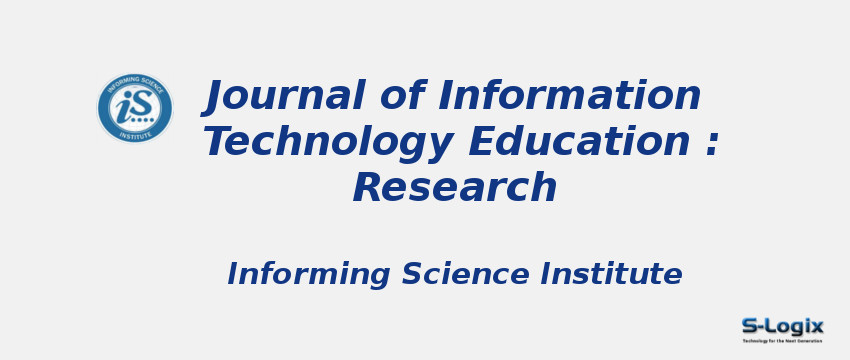Journal Home: Journal Homepage
Editor-in-Chief: Tian Luo
Print ISSN: 1539-3585
Electronic ISSN: 1547-9714
Abstracting and Indexing: Scopus
Imapct Factor :
Subject Area and Category: Computer Science, Computer Science (miscellaneous), Social Sciences, Education, E-learning
Publication Frequency:
H Index: 38
Q1: Education
Q2:
Q3:
Q4:
Cite Score: 5.0
SNIP: 1.235
Journal Rank(SJR): 0.712
Guidelines for Authors: Journal of Information Technology Education:Research Author Guidelines
Paper Submissions: Paper Submissions in Journal of Information Technology Education:Research
Publisher: Informing Science Institute
Country: United States
